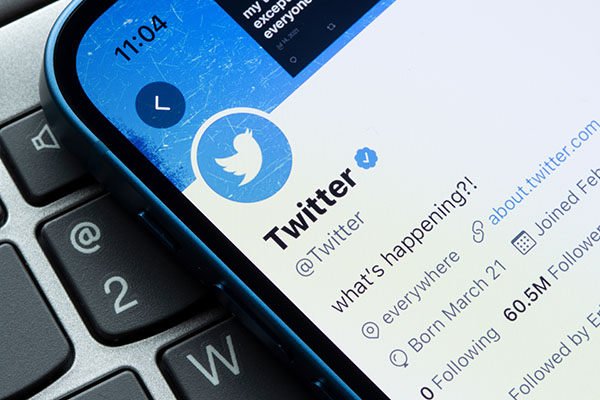Latest X policy orders earners to confirm their government ID with Israeli verification firm
05/30/2024 / By Kevin Hughes

X (formerly Twitter) is now ordering the use of a government ID-based account verification system for users that earn income on the platform either for advertising or for paid subscriptions.
To facilitate this system, X has joined with Au10tix, an Israeli corporation widely known for its identity verification solutions. Users who choose to receive payouts on the platform will have to go through a verification process with the company.
This action seeks to protect against impersonation and fraud and improve user support. Nevertheless, it also raises serious questions about privacy and free speech, as X advertises itself as a free speech platform, and free speech and anonymity usually go hand-in-hand. This is particularly true in nations where their speech can get citizens imprisoned or worse.
“We’re making changes to our Creator Subscriptions and Ads Revenue Share programs to further promote authenticity and fight fraud on the platform. Starting today, all new creators must verify their ID to receive payouts. All existing creators must do so by July 1, 2024,” the update to X’s verification page reads.
This change toward online digital ID verification is part of an extensive trend across the political domain, where the push for identification usually clashes with the need for privacy and anonymous speech.
By connecting online identities to government-issued IDs, platforms like X may suppress expression, as users become cautious of speaking freely when their true identities are known. This policy switch signals a move towards more accurate but also more invasive forms of user identification.
Even though designed to improve security, these practices risk weakening the very essence of free speech by making users feel continually monitored and increasing fears that, soon, all speech on leading platforms will have to be connected to a government-issued ID.
Anonymity has long been a cornerstone of free speech, permitting people to express controversial, dissenting or unpopular opinions without fear of retaliation. Anonymous speech throughout history has been a crucial instrument for activists, whistleblowers and ordinary citizens alike. It enables people to denounce their governments, expose corruption and share personal experiences without endangering their safety or careers.
Governments worldwide demanding an end to online anonymity
Governments around the world have been demanding an end to online anonymity over the last year, and X’s latest policy change is a move toward this agenda. Over the past year, a lot of child safety bills have come out, apparently intended for protecting the youngest internet users.
Nonetheless, below the surface of these well-meaning initiatives lies a more subtle agenda: The drive for extensive online ID verification. X owner Elon Musk has recently declared his support for the bills.
While this recent X change is only for those users appearing to claim a chunk of the advertising revenue that X makes from their posts and is not yet imposed for all users, it is a step towards the normalizing of online digital ID verification.
Although X’s support page for verification indicates that, while ID verification is available in “numerous countries,” it is not available in the European Union (EU), the European Economic Area (EEA) or the United Kingdom. This is probably because of the strict data protection laws of the European continent. (Related: EU to force X to shut down if Musk does not ban independent media from the platform.)
The ID-based verification appears like a preempted move that presently results in nearly no benefits. The corporation stated it might age-gate some content according to the age derived from the ID.
“X currently focuses on account authentication to prevent impersonation and may explore additional measures, such as ensuring users have access to age-appropriate content and protecting against spam and malicious accounts, to maintain the integrity of the platform and safeguard healthy conversations,” it announced.
Users who undergo the verification badge will have a note that states that their government ID was verified. However, you can only view it when you click on the blue checkmark on the profile page.
The corporation also said that users with ID verification will get “prioritized support from X Services,” but it is difficult to comprehend what this means.
Remarkably, the corporation carried out a way for paid users to conceal their checkmarks from their profiles. X said that eventually, it plans to accelerate the review process for checkmarks if a user verifies the ID.
Moreover, they will get to make regular changes to their names, usernames, or profile photos without losing the checkmark. The corporation is also presently providing ID-based verification for paid users only. While X amusingly talks about decreasing impersonation and spam, it doesn’t provide verification tools to all users.
Follow Censorship.news for more stories about X censoring free speech on its platform.
Watch the video below to learn more about X ramping up censorship on its platform.
This video is from the Diane Sosen channel on Brighteon.com.
More related stories:
Sources include:
Submit a correction >>
Tagged Under:
account verification, anonymity, Au10tix, Big Tech, Censorship, Elon Musk, European Union, First Amendment, free speech, Glitch, government ID, ID verification, impersonation, media fact watch, privacy watch, propaganda, speech police, technocrats, thought police, Twitter, United Kingdom, user identification, X
This article may contain statements that reflect the opinion of the author
RECENT NEWS & ARTICLES
COPYRIGHT © 2017 OBEY NEWS




















